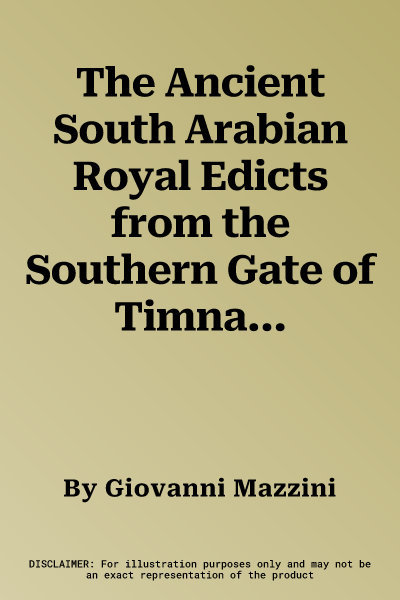English summary: The kingdom of Qataban flourished in ancient South
Arabia during the second half of the first millennium BC. There is an
extensive corpus of around two thousand inscriptions written in
Qatabanic, one of the linguistic variants of ancient South Arabian,
which provides information on many aspects of the society and language
of Qataban. It also helps to reveal ancient South Arabian history as a
whole. The present book is a new edition with philological and
historical commentary of some of the most important royal edicts
belonging to the Qatabanic corpus. These edicts, that were inscribed on
an imposing stone city gate of Timna, the capital of the Qatabanian
kingdom, and on the sacred mountain of the Gabal Labah, give us a unique
insight into the functioning and the institutions of the Qatabanian
legal system, and contribute to a better understanding of the intriguing
complexity of the legal language of Qatabanic. The in-depth analysis of
the Qatabanian legal system shows the crucial role played by the law in
the ancient South Arabian society. Furthermore, many aspects of the
ancient South Arabian law present interesting parallels with various
regions of the ancient Near East that indicates an ancient cultural and
linguistic continuity between the two areas. German description: Ab
der Mitte des 1. Jahrtausends v. Chr. betritt mit Qataban ein weiterer
Akteur die politische Buhne Sudarabiens, der die Sabaer in ihrer
bisherigen dominierenden Stellung ablost. Uber Sprache, Geschichte und
Kultur dieses bislang auch in der Altertumswissenschaft wenig beachteten
antiken Konigreichs unterrichtet ein umfangreiches Inschriftenkorpus,
das auf Qatabanisch, eine der Sprachvarianten des Altsudarabischen,
abgefasst ist. Von besonderer Bedeutung ist dabei eine Reihe
juristischer Verordnungen und Erlasse von Konigen und deren
Korperschaften aus der Hauptstadt Timna? und Umgebung, die einen
Einblick in die komplexe Gesellschaft Qatabans gewahren. In vorliegender
Arbeit werden diese Texte neu ediert und mit einem ausfuhrlichen
philologischen und historischen Kommentar versehen. Dies bildet sodann
die Grundlage fur eine ausfuhrliche Analyse der qatabanischen
Rechtsordnung und zeigt zugleich auf, welche bedeutende Rolle dem Recht
in den Gesellschaften des vorislamischen Sudarabien zukommt. Daruber
hinaus weisen viele Aspekte des altsudarabischen Rechts uberraschende
Parallelen mit dem Alten Orient auf.

